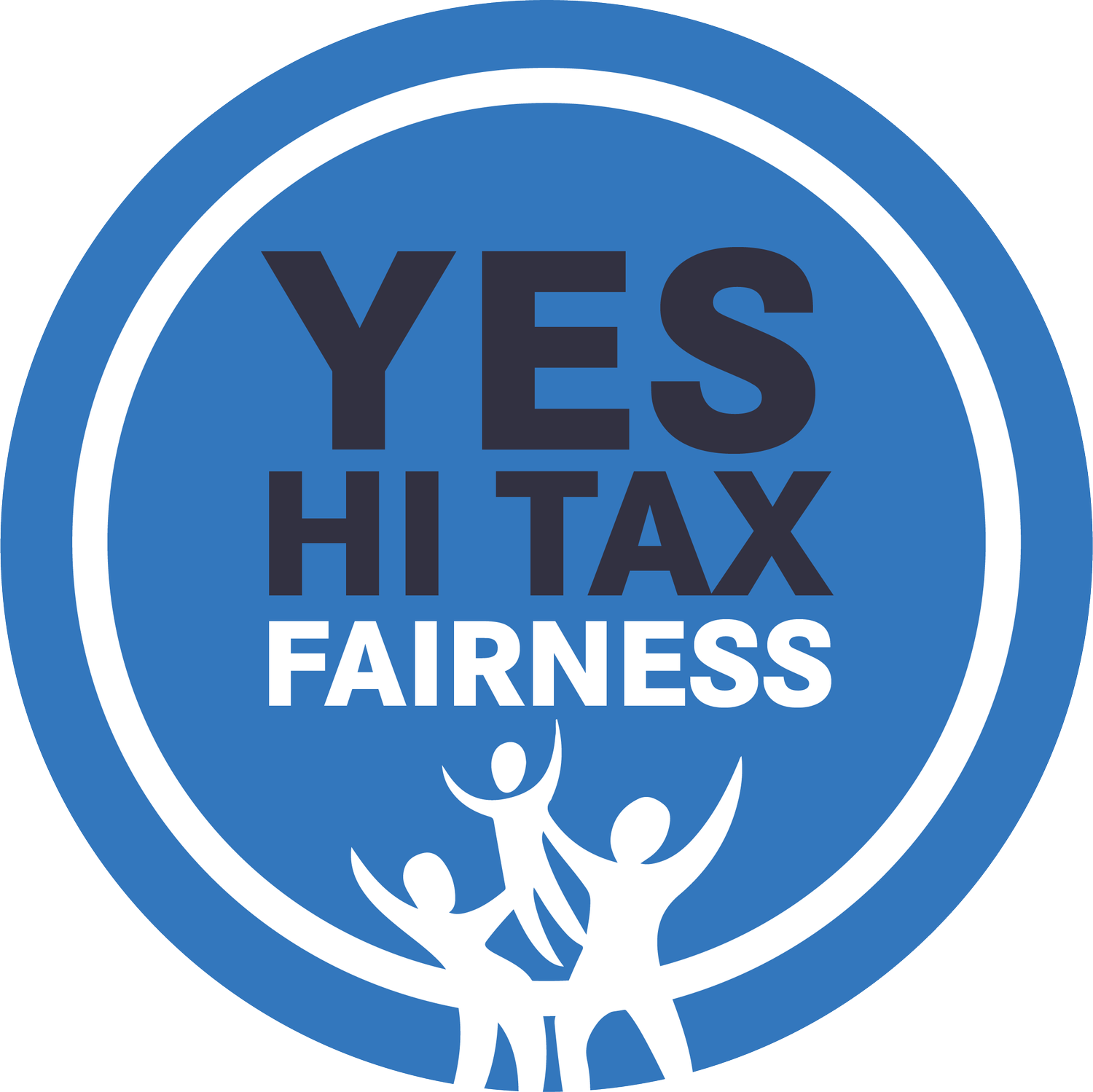Senate’s tax fairness bill is good for Hawaiʻi—here’s why
The gap in wealth and income between the richest and poorest is growing ever wider in Hawaiʻi and across the United States. Polls consistently show that people support increasing taxes on the rich and on corporations. Yet at the national level, top tax rates on the highest earners are near historic lows.
During the 1950s, the top marginal income tax rate was as much as 92 percent. As recently as 1980, it was 70 percent. Trump’s tax cuts in 2017 reduced the top rate on the wealthiest to just 37 percent.
State Senate Bill 56 proposes to temporarily increase the top marginal income tax rate on Hawaiʻi’s wealthiest taxpayers from 11 percent to 16 percent. The changes proposed will not affect income tax rates for other taxpayers.
The proposal seems to have a lot of people riled up, but this could be due to misinformation about how marginal tax rates work: a taxpayer pays a base rate plus an additional amount on whatever income they earn above the base. The highest rate doesn’t apply to the full income—only to the excess.
The proposed change for taxpayers at the highest level would mean that a single taxpayer with a taxable income of $250,000 would pay the same base rate they do now on their first $200,000. The marginal rate of 16 percent applies only to the additional $50,000. As a result, this particular taxpayer’s overall actual tax rate would be 10 percent under the proposed bill rather than 9 percent using the current rate.
Senate Bill 56 accomplishes what most of us would like our tax system to do: It assesses a greater contribution to the public good from those who can afford it.

